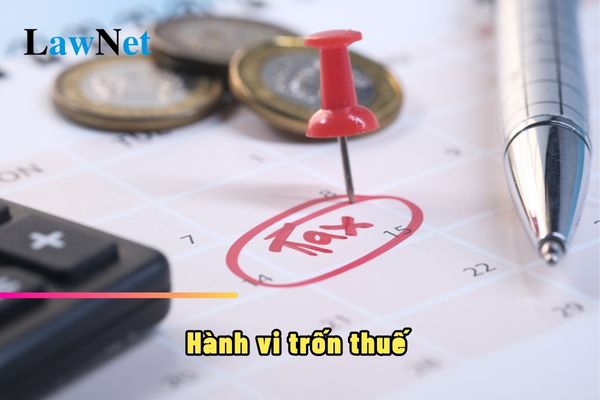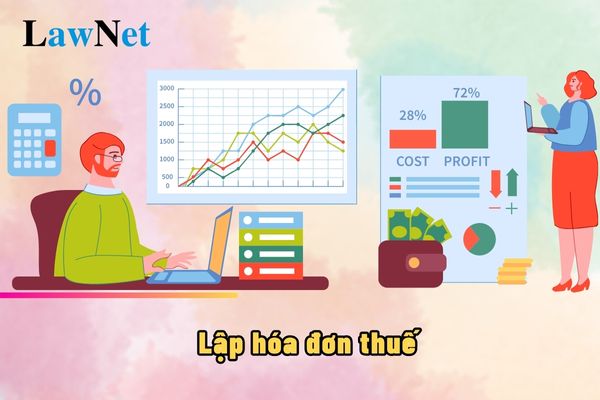Is writing lower prices on the sale invoices than the actual prices considered tax evasion in Vietnam?
Is writing lower prices on the sale invoices than the actual prices considered tax evasion in Vietnam?
Based on Clause 2, Article 143 of the 2019 Law on Tax Administration, the act of tax evasion is defined as follows:
Acts of Tax Evasion
1. Not submitting a taxpayer registration file; not submitting a tax declaration file; submitting a tax declaration file more than 90 days after the deadline or extension deadline for submitting the tax declaration file as stipulated by this Law.
2. Not recording in accounting books the revenues related to determining the tax payable.
3. Not issuing invoices when selling goods or services in accordance with the law or writing lower prices on the sale invoices than the actual prices.
4. Using illegal invoices or documents, or illegally using invoices to account for goods or input materials in tax liability-generating activities to reduce the payable tax amount or to increase the amount of tax exempted, reduced, or deductible; tax refund or non-taxable amount.
5. Using documents or evidence that do not reflect the true nature of transactions or real value of transactions to incorrectly determine the payable tax amount, the amount of tax exempted, reduced, refunded, or not payable.
6. Incorrectly declaring exported or imported goods without supplementing tax declaration files after the goods have been cleared.
7. Intentionally not declaring or misdeclaring taxes related to exported or imported goods.
8. Colluding with the sender to import goods for the purpose of tax evasion.
9. Using goods that are subject to non-taxation, exemption, or examination for non-compliance with intended use regulations without declaring the change in usage purpose to the tax administration authority.
10. Conducting business activities during the period of business cessation or suspension without notifying the tax administration authority.
11. The taxpayer is not penalized for tax evasion acts but is penalized under the provisions of Clause 1, Article 141 of this Law in the following cases:
a) Not submitting a taxpayer registration file, not submitting a tax declaration file, submitting a tax declaration file after 90 days but no tax payable arises;
b) Submitting a tax declaration file after 90 days results in tax payable, and the taxpayer has fully paid the overdue tax, including interest, before the tax authority announces a tax inspection or audit decision, or before the tax authority issues a report on late submission of tax declaration files.
Therefore, according to the above regulations, listing the price of goods on a tax invoice lower than reality is one of the acts of tax evasion.

Is writing lower prices on the sale invoices than the actual prices considered tax evasion in Vietnam? (Image from the Internet)
What are penalties for tax evasion in Vietnam?
Based on Article 17 of Decree 125/2020/ND-CP, the current penalties for tax evasion acts are as follows:
- Fines equal to the amount of evaded tax for taxpayers who have one or more mitigating circumstances when committing any of the following violations:
+ Not submitting a taxpayer registration file; not submitting a tax declaration file, or submitting a tax declaration file after 90 days from the deadline or extension deadline for filing, except as stipulated in points b, c, Clause 4, and Clause 5, Article 13 of Decree 125/2020/ND-CP;
+ Not recording in accounting books the revenues related to determining the tax payable, not declaring, misdeclaring leading to a shortage of tax payable, or increasing the tax amount refundable, exempted, or reduced, except for acts stipulated in Article 16 of Decree 125/2020/ND-CP;
+ Not issuing invoices when selling goods, services, except when the taxpayer has declared tax on the value of goods or services already sold or supplied in the corresponding tax period; issuing sales invoices with incorrect quantity, value of goods, services to declare a tax amount lower than actual and are detected after the deadline for filing the tax declaration file;
+ Using illegal invoices; illegally using invoices to declare tax to reduce the payable tax amount or increase the tax amount refundable, exempted, reduced;
+ Using illegal documents; illegally using documents; using documents or evidence that do not reflect the true nature of transactions or real value of transactions to incorrectly determine the payable tax amount, the amount of tax exempted, reduced, or refundable; making procedures, dossiers for canceling materials, goods not in reality to reduce the payable tax amount or to increase the tax amount refundable, exempted, reduced;
+ Using goods subject to non-taxation, exemption, or compliance with intended use without declaring the change in usage purpose, declaring tax to the tax authority;
+ Conducting business activities during the period of requested cessation, suspension of business activities without notifying the tax authority, except as provided in point b, Clause 4, Article 10 of Decree 125/2020/ND-CP.
- Fines of 1.5 times the amount of evaded tax for taxpayers committing any of the violations stipulated in Clause 1 of this Article without aggravating or mitigating circumstances.
- Fines of 2 times the amount of evaded tax for taxpayers committing any of the violations stipulated in Clause 1 of this Article with one aggravating circumstance.
- Fines of 2.5 times the amount of evaded tax for taxpayers committing any of the violations stipulated in Clause 1 of this Article with two aggravating circumstances.
- Fines of 3 times the amount of evaded tax for taxpayers committing any of the violations stipulated in Clause 1 of this Article with three or more aggravating circumstances.
- Measures to remedy consequences:
+ Requiring the full payment of the evaded tax amount to the state budget for the violations stipulated in Clauses 1, 2, 3, 4, 5 of this Article.
In cases where the tax evasion acts as prescribed in Clauses 1, 2, 3, 4, 5 of this Article have exceeded the statute of limitations for penalties, the taxpayer will not be penalized for tax evasion acts, but must pay the full amount of evaded tax, interest on the evaded tax amount to the state budget within the time limit specified in Clause 6, Article 8 of Decree 125/2020/ND-CP.
+ Requiring adjustments in losses, deductible input value-added tax in tax records (if any) for acts stipulated in Clauses 1, 2, 3, 4, 5 of this Article.
- The violations stipulated in points b, d, e of Clause 1 of this Article discovered after the deadline for filing tax declaration files but did not reduce the payable tax amount or have not been refunded, do not increase the amount exempted, reduced shall be administratively fined as stipulated in Clause 3, Article 12 of Decree 125/2020/ND-CP.
What are rules for imposition of penalties for tax administrative offences in Vietnam?
According to Article 136 of the 2019 Law on Tax Administration, the rules for imposition of penalties for tax administrative offences are as follows:
- The sanctioning of administrative violations in tax management is carried out in accordance with the law on tax management and the law on handling administrative violations.
- Administrative violations related to the use of illegal invoices, illegal use of invoices, or using non-conforming invoices leading to tax shortage or tax evasion will not be penalized as an administrative violation regarding the invoice but will be penalized as an administrative violation in tax management.
- The maximum fine for acts of incorrect declaration leading to a tax shortage or increase in the amount of tax exempted, reduced, refunded, or not collected, and acts of tax evasion will be applied according to the provisions of this Law.
- For the same act of administrative violation concerning tax management, the fine for organizations is double the fine for individuals, except for fines related to incorrect declaration leading to a tax shortage or increase in the amount of exempted, reduced, refunded, or non-collected tax, tax evasion.
- In cases where the taxpayer is subject to enforced tax according to Articles 50 and 52 of this Law, depending on the nature and level of the violation, the taxpayer may be penalized for administrative violations in tax management according to this Law.
- The person with authority while performing public duties who detects administrative violations concerning tax management is responsible for making an administrative violation record as stipulated. In cases where taxpayers register, file tax declarations, or settle tax obligations electronically, if the electronic notice confirming the receipt of taxpayer registration, tax declaration, or settlement files indicates an administrative violation concerning tax management, this notice serves as an administrative violation record as the basis for issuing a sanctioning decision.
- In cases of violating tax management laws to the extent of criminal prosecution, the provisions of criminal law shall apply.


- What are 02 ways to write limitations, shortcomings, and causes in the Form 02A on year-end self-assessment for members of Communist Party of Vietnam 2024? Which incomes are bases for determining membership fees?
- How to determine the effective tax rate and top-up tax percentage in Vietnam?
- Will there be penalties imposed for supplementing a tax return before a tax audit in Vietnam?
- When shall a fine which is 2 times as much as the amount of evaded tax be imposed for the act of tax evasion in Vietnam?
- What are cases of distribution of corporate income tax in Vietnam?
- Is a person who assists in tax evasion subject to publishing of information about taxpayers in Vietnam?
- What are conditions for not imposing anti-dumping duties on products whose dumping margin are not more than 2 % of export price in Vietnam?
- From December 16, 2024, what will be the preferential import tax duty for e-cigarettes in Vietnam?
- What is the guidance for looking up online land tax on the e-portal of the General Department of Taxation of Vietnam?
- Is the credit-invoice method applied by the taxpayer that earns at least 1 billion VND in annual revenue in Vietnam?

